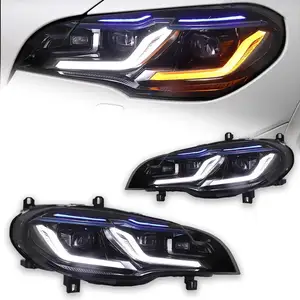Popular in your industry










Related Searches:

























Top categories
About scania air compressor
The Scania air compressor is a vital component in the automotive industry, especially within the heavy-duty transportation sector. It is engineered to meet the demanding requirements of various vehicles, ensuring that pneumatic systems are supplied with the necessary compressed air for optimal functionality. A Scania compressor is synonymous with reliability and efficiency, catering to a broad spectrum of commercial vehicles.
Types and Characteristics of Scania Compressors
Scania compressors are available in a variety of models, each with unique characteristics designed to suit different vehicle requirements. The single-cylinder compressors are ideal for light to medium applications, offering simplicity and cost-effectiveness. On the other hand, the more powerful multi-cylinder compressors provide the necessary performance for heavy-duty vehicles that require a consistent and robust supply of compressed air. Specialized compressors, such as the Scania ac compressor, are designed for climate control systems, ensuring driver and passenger comfort regardless of external weather conditions. Each type of compressor is a testament to Scania's commitment to versatility and meeting the diverse needs of the transportation industry.
Structure of Scania Air Compressors
The Scania air compressor is meticulously engineered, featuring a crankshaft that converts the engine's power into a reciprocating motion to drive the pistons. These pistons are housed within cylinders, where they compress the incoming air. The valve head assembly, equipped with precision-engineered intake and discharge valves, controls the flow of air into and out of the compressor. The entire structure is designed to maximize efficiency and ensure the delivery of clean, dry, and compressed air to the vehicle's systems. The robust construction also minimizes vibration and noise, contributing to a more comfortable driving experience.
Materials and Properties in Scania Compressors
The selection of materials for a Scania air compressor is a critical factor in its design. Components such as the crankshaft and connecting rods are typically made from forged steel, which provides the toughness needed to withstand the forces of compression. Aluminum alloys are often used for the pistons due to their lightweight properties, which contribute to the overall efficiency of the compressor by reducing the inertia of moving parts. The use of corrosion-resistant materials ensures that the compressor maintains its integrity even in harsh operating environments, leading to a longer service life and reduced need for frequent replacements.
Business Usages and Applications of Scania Air Compressors
The air compressor Scania is pivotal in businesses that rely on heavy-duty vehicles. In the transportation industry, it ensures the reliability of air brake systems, which are crucial for the safety of large trucks and buses. In construction, these compressors enable the operation of heavy pneumatic tools and machinery, essential for project efficiency and success. The adaptability of Scania compressors to various industrial settings underscores their value in providing operational continuity and safety, which are critical components of business productivity.
Functions of Scania Air Compressors
A Scania air compressor is designed to perform several key functions within a vehicle's pneumatic system. Its primary role is to supply compressed air for the air brake system, which is essential for the safe operation of heavy vehicles. Additionally, it powers other systems such as air suspensions, which contribute to a vehicle's handling and comfort. The compressor also provides air for auxiliary systems, including gear shift controls and air-operated clutches, showcasing its multifunctional capabilities.
Features of Scania Compressors
The Scania compressor is equipped with features that enhance its performance and reliability. These include an advanced air intake system that filters out contaminants, ensuring that only clean air is compressed and delivered. Some models are equipped with energy-saving features that reduce the load on the engine, thereby improving fuel efficiency. The integration of monitoring systems in some compressors allows for real-time performance tracking, which can preemptively indicate maintenance needs, thus avoiding unexpected downtime.
Benefits of Using a Scania Air Compressor
Employing a genuine Scania air compressor in your fleet can lead to significant benefits. The assurance of using a product designed specifically for your vehicle means that it will perform as expected, reducing the risk of compressor-related failures. The high-quality materials and construction of Scania compressors result in a lower frequency of maintenance intervals, leading to cost savings over time. Furthermore, the reliability of these compressors contributes to the overall safety of the vehicle, which is paramount for operators and fleet managers alike.
How to Use and Maintain a Scania Air Compressor
Proper usage and maintenance of a Scania air compressor are crucial for its longevity and performance. Operators should adhere to the recommended operating pressures and avoid overloading the compressor to prevent premature wear. Regular maintenance checks, including inspecting for leaks, monitoring oil levels, and replacing air filters, are essential. When choosing a compressor, it's important to match the specifications to the vehicle's requirements. For cleaning, use appropriate solvents and avoid harsh chemicals that can damage the compressor's materials. Installation should be carried out by professionals who can ensure correct alignment and operation.
Target Audience and Meeting Their Needs
The target audience for Scania compressors includes professionals in the logistics, construction, and transportation sectors who require dependable and high-performing components for their vehicles. Scania compressors are designed with these users in mind, offering a product that not only meets but exceeds the rigorous demands of their respective industries. By providing a reliable source of compressed air, Scania compressors help maintain the continuity of business operations and contribute to the overall efficiency and safety of the work environment.
What are the signs of a failing Scania air compressor?
Indicators of a failing compressor include unusual noises during operation, decreased air pressure output, and increased air compressor cycle times. These signs necessitate a prompt inspection to avoid further damage or operational hazards.
How can one ensure the authenticity of a Scania air compressor?
To guarantee the authenticity of a Scania air compressor, one should source the component from reputable suppliers on Alibaba.com, which lists verified products and offers quality warranties, ensuring that the parts are genuine and meet the required standards.
What should be considered when installing a new Scania air compressor?
When installing a new Scania air compressor, it is essential to follow the manufacturer's guidelines. Proper alignment, torque specifications, and ensuring that all connections are secure are critical steps to avoid operational issues and ensure the longevity of the compressor.



























